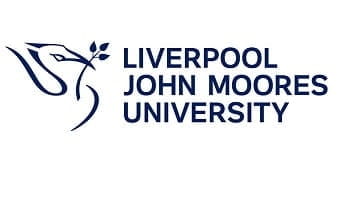Course modules
What you will study on this degree
Further guidance on modules
Modules are designated core or optional in accordance with professional body requirements, as applicable, and LJMU’s Academic Framework Regulations. Whilst you are required to study core modules, optional modules provide you with an element of choice. Their availability may vary and will be subject to meeting minimum student numbers.
Where changes to modules are necessary these will be communicated as appropriate.
Core modules
Engineering and Technology Practice
20 credits
20 credits
Foundation Mathematics for Engineering and Technology 1
20 credits
20 credits
Foundation Mathematics for Engineering and Technology 2
20 credits
20 credits
Introductory Foundation Physics
20 credits
20 credits
Additional Foundation Physics
20 credits
20 credits
English Language Studies
20 credits
20 credits
Core modules
Engineering Mathematics 1a
10 credits
10 credits
Engineering Mathematics 1b
10 credits
10 credits
Professional Practice and the Environment
20 credits
20 credits
Analogue Electronics
20 credits
20 credits
Software Development for Embedded Systems
20 credits
20 credits
Digital Electronics
20 credits
20 credits
Engineering Circuit Analysis
20 credits
20 credits
Core modules
Advanced Mathematics
10 credits
10 credits
Embedded Systems Programming and Applications in the Environment
20 credits
20 credits
Local Communications Systems and Applications
20 credits
20 credits
Instrumentation and Control Engineering
20 credits
20 credits
Electric machines, power systems and clean energy
20 credits
20 credits
Linear Electronics Design and the Environment
10 credits
10 credits
Professional Practice Integrative Project
20 credits
20 credits
Core modules
Engineering Project
40 credits
40 credits
Process Control and Applications
20 credits
20 credits
Automation and IoT
20 credits
20 credits
Engineering Management
10 credits
10 credits
Signals and Systems with Real World Applications
10 credits
10 credits
Power Electronics and the Environment
20 credits
20 credits
Fees and funding
Entry requirements
Please choose your qualifications below to view requirements
Grades/points required from qualifications:
Work out how many UCAS points your qualifications are worth using the UCAS Tariff Calculator.
Qualification requirements
Alternative qualifications considered
To be enrolled, students should attend national university entrance examinations and pass the line of second level (Normally their scores should be higher than the provincial score of second level). In China, the college entrance outcomes are divided into 3 levels (1st, 2nd, 3rd). Students will be able to demonstrate efficiency in English to a standard equivalent to IELTS 5.5. USST will operate within the guidance of the LJMU Admissions Policy, please see LJMU Code of Practice for Admissions at: https://www.ljmu.ac.uk/~/media/files/ljmu/public-information-documents/student-regulations/guidance-policy-and-process/admissions-policy
International requirements
Other international requirements
National University Entrance Examinations, Second Level
How to apply
Securing your place at LJMU
Your university life
From accommodation and academic support to clubs and societies. Find out what LJMU has to offer.
Talk to our students
Connect with a current LJMU student for advice and guidance on university life, courses and more.
See what our students are saying
At LJMU we want you to know you're making the right choice by studying with us. You can see what our students are saying about their experience with us through their reviews on the following websites:
Related Links
News and views
Browse through the latest news and stories from the university










The university reserves the right to withdraw or make alterations to a course and facilities if necessary; this may be because such changes are deemed to be beneficial to students, are minor in nature and unlikely to impact negatively upon students or become necessary due to circumstances beyond the control of the university. Where this does happen, the university operates a policy of consultation, advice and support to all enrolled students affected by the proposed change to their course or module.
Further information on the terms and conditions of any offer made, our admissions policy and the complaints and appeals process.









